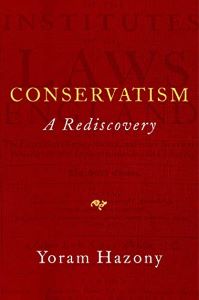As one strolls across the metaphorical battlefield of Canadian politics it’s easy to tell which “soldiers” were on the liberal side of the battle and which were on the conservative side. Those on the liberal were all shot in the front, while those on the conservative were all shot in the back.
The above observation always draws a chuckle when related to political activists of my generation. They know it’s true. Just how true, however, was illustrated by two events from last week.
The first was Maxime Bernier’s announcement that he will be the People’s Party of Canada (PPC) candidate in the upcoming federal by-election in the Manitoba riding of Portage-Lisgar, recently vacated by long-time Conservative MP Candice Bergen.
Bernier has a steep hill to climb. Bergen won the riding comfortably in 2021 with more than twice the number of votes as her PPC opponent. Despite his national profile, he remains an outsider in a riding made up of a cluster of close-knit communities that still value home-grown talent. His Conservative Party opponent, Brendan Leslie, is an experienced and savvy political organizer with deep roots in the riding who beat two high-profile candidates for his party’s nomination, including local MLA and provincial Minister of Finance Cameron Friesen.
Immediately upon announcing his candidacy, Bernier attacked Pierre Poilievre, calling the party he leads “fake conservatives” and accusing him of “softening his message” to gain seats in the GTA and lower BC mainland. I too wish that Poilievre and the Conservative Party were more explicitly and robustly conservative in both their policies and messaging, but Bernier’s criticism is unfair. Leading a successful national political party in a country as large and diverse as Canada is a monumental endeavour that requires skill, patience, and yes, a willingness to compromise when necessary.
Bernier and his supporters seem to think that compromise is the equivalent of selling out. In fact, compromise isn’t just essential to building a winning electoral coalition, it’s an integral element of democratic government. As Ronald Reagan put it:
“There are some people who would have you stand on (the) principle that if you don’t get all that you’ve asked for from the legislature, you jump off the cliff with the flag flying. I have always figured that half a loaf is better than none and I know that in the democratic process, you’re not always going to get what you want.”
The question, then, is not whether compromises should be made, but rather, how much, and on what? There is no single correct answer to either of these questions; it depends on time and place and is the subject of both careful deliberation and vigorous debate.
Bernier suggests that the merger that led to the creation of the modern Conservative Party in Canada was a mistake. What he doesn’t understand is that the ideological tensions that exist in today’s Conservative Party were also present in the Reform Party and its successor, the Canadian Alliance. If the Conservative Party is less “conservative” today than it was at the merger, it’s because too many conservatives have abandoned the party, preferring the friendly climes of ideologically-pure fringe parties to the rough and tumble of truly democratic institutions.
“But the system is rigged!” I hear this complaint often in reference to the Conservative Party. But a rigged system can be reformed if enough people are prepared to fight for that reform and have the courage and fortitude to remain in the ring when the other side fights back – particularly when the other side fights back dirty.
Besides, how is the PPC different? Did the PPC hold an open nomination in Portage-Lisgar or did Bernier – as leader – simply appoint himself as the candidate?
There’s more than one way to rig a system.
The second event to which I refer was the wide circulation of an email accusing conservative “influencers” who, like me, have chosen not to abandon the Conservative Party, of being an “enemy” that perpetuates the “parasitic existence” of “establishment political parties.” Harsh words indeed, which the author supports by offering the following quote by Sir Winston Churchill on the nature of appeasement: “Appeasement is feeding a crocodile, hoping that it easts you last.”.
But this is a popular misquote. What Churchill actually said – specifically referring to those countries that had declared their intention to remain neutral in the face of looming Nazi aggression – was: “Each one hopes that if he feeds the crocodile enough, the crocodile will eat him last.” He made the statement in a radio address on January 20, 1940.
Churchill’s views on appeasement were, in fact, much more nuanced and, I would argue, more mature. “The word ‘appeasement’ is not popular,” he said in 1950, “but appeasement has its place in all policy. Make sure you put it in the right place.”
The author of the aforementioned email seems not to know his history, or if he does, he seems not to understand its significance. Churchill never contemplated abandoning his party despite being shunned – and worse – by its “establishment” leadership. Quite the contrary, he would have considered the very idea petty and petulant.
No man in modern political history would have been more justified than Winston Churchill in leaving his party and starting a new one made up of himself and those of his followers already in Parliament. As he wrote in his memoir:
“Mr. Baldwin (Stanley Baldwin, PM and Conservative Party leader who in 1936 shut Churchill out of all decision-making bodies in both the British Parliament and the party) certainly had good reason to use the last flickering of his power against one who had exposed his mistakes so severely and so often. Moreover, as a profoundly astute party manager… he did not wish to have my disturbing aid. He thought, no doubt, that he had dealt me a politically fatal stroke, and I felt he might well be right.”
Despite this and other severe setbacks, Churchill remained a loyal member of the Conservative Party, soldiering on in the face of public opposition and the opprobrium of his own friends and colleagues that at times left him on the brink of despair. As he later recalled: “I had to be very careful not to lose my poise in the great discussions and debates… I had to control my feelings and appear serene, indifferent, detached.”
Leaving the Conservative Party in these circumstances and congregating with those who shared his views would have been the easy and comforting thing to do. Remaining and fighting took courage and strength of character. Churchill continued to struggle from the inside for what he believed in and, when his hour struck, was available to lead his nation and the free world.
As for applying an ideological litmus test when selecting his colleagues and allies, when asked how he could so swiftly and easily embrace the Soviet Union as an ally after Hitler invaded that country in 1941, Churchill, an ardent anti-communist, replied that "If Hitler invaded Hell, I would make at least a favourable reference of the Devil in the House of Commons."
There is an important lesson to be learned from Churchill’s example, unfortunately it’s not the one being taught by Maxime Bernier and his supporters. As in life, the decisions that we make in politics are rarely between right and wrong. With luck, they are between right and more right, but often they are between bad and worse. Making those decisions in the face of relentless attacks – not just from one’s opponents, but from one’s friends, takes a special kind of courage that very few of us have.
I have had the good fortune of knowing and working with both Pierre Poilievre and Maxime Bernier over the years. Both are honourable men. On policy, I am more closely aligned with Bernier. But Pierre Poilievre is no appeaser. Nor is Maxime Bernier simply an opportunist out to make a name for himself, as former Conservative Party leader Andrew Scheer tweeted last week in response to Bernier’s taunts. Bernier is an intelligent and passionate spokesperson for enduring conservative principles and sensible conservative policies that I and many – perhaps even a majority – of Conservative Party members agree with.
It is painful to watch two formidable personalities and the organizations they represent pummel one another to the detriment of a movement and country that desperately need both. Conservative infighting hurts all Canadians. The beneficiary is Justine Trudeau who, despite his own unpopularity, is laughing all the way to a probable fourth election victory.
Dear Reader,
I don't charge for my content, but...
I do accept voluntary contributions from readers like you who appreciate insightful analysis and value intelligent debate. If you like what you are reading, please consider making a small one-time or monthly contribution by clicking here.


 Conservatism: A Rediscovery explains how Anglo-American conservatism became a distinctive alternative to divine-right monarchy, Puritan theocracy, and liberal revolution. After tracing the tradition from the Wars of the Roses to Burke and across the Atlantic to the American Federalists and Lincoln, Hazony describes the rise and fall of Enlightenment liberalism after World War II and the present-day debates between neoconservatives and national conservatives over how to respond to liberalism and the woke left.
Conservatism: A Rediscovery explains how Anglo-American conservatism became a distinctive alternative to divine-right monarchy, Puritan theocracy, and liberal revolution. After tracing the tradition from the Wars of the Roses to Burke and across the Atlantic to the American Federalists and Lincoln, Hazony describes the rise and fall of Enlightenment liberalism after World War II and the present-day debates between neoconservatives and national conservatives over how to respond to liberalism and the woke left.
